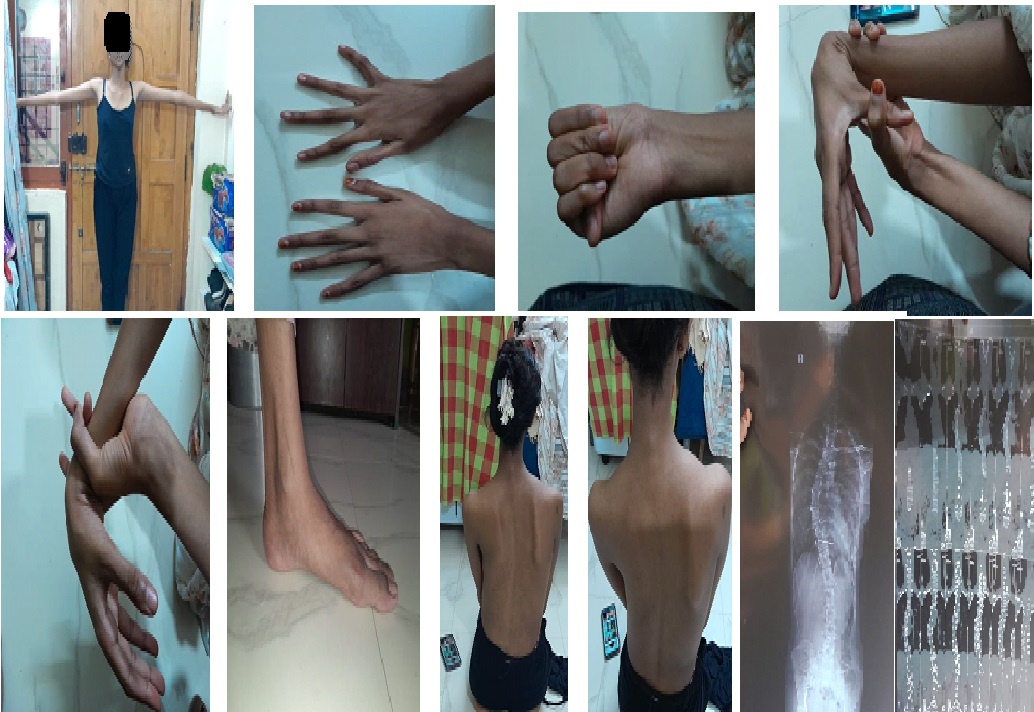Ayurvedic Insights into the Forme Fruste of Marfan Syndrome
DOI:
https://doi.org/10.47070/ayushdhara.v11i5.1759Keywords:
Marfan syndrome, Kyphoscoliosis, Beeja dosha, Sahaja vyadhiAbstract
Marfan Syndrome, an autosomal dominant, generalized disorder affecting the connective tissue, caused by mutations of FBN 1 gene which leads to deficiency of fibrillin 1 leading to reduced microfibril formation and disrupts the mechanical integrity of connective tissue, presents a complex clinical picture affecting multiple systems, poses significant challenges to conventional management. We present an 18-year-old female with Marfan Syndrome, highlighting her clinical features such as thin and slender body with disproportionately long arms and legs as compared with the trunk, bilateral Ectopia lentis, Arachnodactyly, positive Walker Murdoch Wrist sign and positive Steinberg Thumb sign, bilateral Pes planus, asymmetrical chest with mild Pectus carinatum deformity and moderate degree of Kyphoscoliosis along with winging of scapula. This article explores the Ayurvedic concept of Beeja dosha and highlights the value of integrating Ayurvedic insights into the management of Marfan Syndrome, offering a holistic and personalized approach to patient care to improve the quality of life and aims to deepen understanding of Marfan Syndrome from an Ayurvedic perspective, laying the groundwork for future research into Ayurvedic management strategies.
Downloads

Downloads
Published
Issue
Section
License
Copyright (c) 2024 AYUSHDHARA

This work is licensed under a Creative Commons Attribution-NonCommercial-ShareAlike 4.0 International License.


